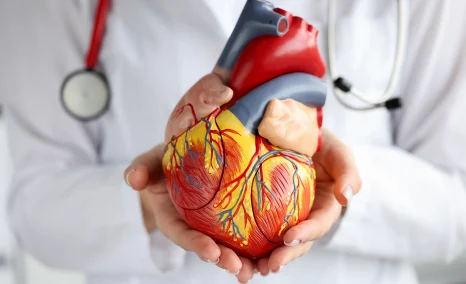Leman Micro Devices’ e-Checkup system; Calon Cardio-Technology & Leviticus-Cardio announced Breakthrough; Alcon buys Ivantis; Medtronic to acquire Affera; Abiomed’s Impella 5.5 with SmartAssist; Abbott’s EnSite X EP System with EnSite OT
Jan 13, 2022
Table of Contents
Leman Micro Devices tested against the cuffed blood measurement devices reported positive results
On January 07, 2022, the e-Checkup system by Leman Micro Devices tested in the world’s first clinical trial against the cuffed blood measurement devices reported positive results.
The e-Checkup and its small V-sensor developed and commercialized by Leman Micro Devices can be built into a cell phone or wearable or a pocket-sized detector that communicates with a cell phone via Bluetooth. This enables the app on the phone to analyze the sensor’s measurements to give a clinically accurate personal blood pressure measurement in under a minute. The whole setup costs only a few dollars compared to the prices of the automated cuff devices.
Downloads
Click Here To Get the Article in PDF
Recent Articles
- Alcon Gains CE Mark for Clareon Vivity IOL in Europe; MicroPort MedBot’s Toumai SP Robot Wins NMP...
- Neprilysin Inhibitor for Cardiovascular Diseases
- Treatment-resistant Hypertension: Insights into the Challenges and Solutions
- One of the leading causes of blindness, and a sight-threatening disease, Uveitis, now has novel t...
- FDA Approves Lexicon’s INPEFA (Sotagliflozin); PTC Therapeutics’s Vatiquinone MOVE-FA Registratio...
The clinical trial was conducted in India; wherein there is a high incidence of hypertension, a large rural population, and limited access to doctors. The trial was conducted while maintaining adherence to the internationally recognized ISO 81060-2 standard for automatic blood pressure monitors used by hospitals, physicians, and consumers. The test found that e-Checkup fully complies with this standard’s requirements.
Mark-Eric Jones, Chief Executive Officer of LMD, mentioned that these meaningful trials prove that their patented and proprietary technology lets accurate, life-saving measurements. Whether taking measurements or calibrating the device frequently, no other portable device can measure blood pressure without a cuff.
Dr. K. Saumya, the trial’s lead researcher, said that this device could be a real lifesaver in India. It is small and affordable, and the device will remind people of the need to consult a doctor about blood pressure before the consequences of the disease.
According to DelveInsight’s analyst, the development of such a device could transform the Blood Pressure Monitoring Devices market domain. It would pave the way for cuffless blood pressure monitoring devices to become the norm in the coming future.
Alcon completes acquisition of Ivantis Inc
On January 10, 2022, Alcon Inc closed the acquisition of Ivantis Inc. This acquisition will allow Alcon to gain access to the novel minimally invasive glaucoma surgery device (MIGS) called Hydrus Microstent developed by Ivantis to treat open-angle glaucoma patients in connection with cataract surgery.
David Endicott, CEO of Alcon mentioned that they believe this transaction will further strengthen their global surgical portfolio and help offer a platform for more growth in the glaucoma space. As they welcome Ivantis associates into Alcon, they look forward to introducing Hydrus Microstent on a broader, global scale in the near future to help even more patients see brilliantly.
Dr. Ike Ahmed, Research Director at Kensington Eye Institute, Director of the Glaucoma and Advanced Anterior Segment Surgery (GAASS) Fellowship Program at the University of Toronto, said that this is a vital time for Hydrus Microstent as they continue to learn more about its long-term efficacy and outcomes for glaucoma patients worldwide.
The Hydrus Microstent is currently indicated to reduce intraocular pressure in adult patients with mild to moderate primary open-angle glaucoma in conjunction with cataract surgery. In other countries such as Australia, the UK, Canada, Germany, and Singapore, it is indicated for primary open-angle glaucoma in conjunction with cataract surgery and as a stand-alone procedure.
Alcon plans to pursue stand-alone surgery indications for Hydrus Microstent in the U.S. with clinical trials underway and additional information about potential expansion plans will be provided in the future.
According to DelveInsight’s Glaucoma Drainage Devices Market & Competitive Landscape, the global Glaucoma Drainage Devices Market is estimated to increase at a CAGR of 5.39% during the study period from 2021 to 2026. The need for glaucoma drainage devices is primarily due to rising geriatric population base, increasing prevalence of lifestyle disorders, glaucoma prevalence, and technical innovation in product development.
Impella 5.5 with SmartAssist receives regulatory approval from various authorities
On January 10, 2022, Abiomed made significant headway in the regulatory domain for its Impella surgical products as regulatory authorities in three countries granted approvals.
In North America, the US Food and Drug Administration granted the Early Feasibility Study (EFS) Investigational Device Exemption (IDE) to Impella BTR (Bridge-to-Recovery). This approval in the United States allowed for the first patient in the world to be treated with Impella BTR. The device is a percutaneous heart pump and designed to be much less invasive than the current LVADs. The early feasibility study approved in the United States is expected to enroll 10 patients and be supported with the device for up to 28 days.
Michael R. Minogue, Chairman, President and Chief Executive Officer, Abiomed, stated that the approval by the FDA is a first step toward making this longer-term minimally invasive forward flow smart heart pump a reality for chronic heart failure patients.
In Asia, Impella 5.5 with SmartAssist received the regulatory approval from the Pharmaceuticals and Medical Devices Agency (PMDA) and Medical Device Division (MDD), medical regulatory bodies of Japan and Hong Kong respectively. In Japan, this device is indicated for treating drug-resistant acute heart failure. The first Impella 5.5 with SmartAssist patients in Japan is expected to be treated in the coming months.
Michael R. Minogue, Chairman, President and Chief Executive Officer, Abiomed, stated that the Japanese market is ideal for Impella 5.5 with SmartAssist since the technology proffers minimally invasive, longer-term unloading support, allowing native heart recovery in a country that is more resistant to invasive sternotomies and heart transplants.
According to DelveInsight’s Heart Pump Devices Market & Competitive Landscape, the global Heart Pump Devices Market was worth at USD 2.37 billion in 2020, increasing at a CAGR of 15.24% during the study period from 2021 to 2026, to reach USD 6.36 billion by 2026. The need for Heart Pump Devices is because of the increase in cardiovascular disease (CVDs) prevalence, rise in geriatric population, and various companies with products in their pipeline phase. Heart Pump devices were found to be extremely beneficial in heart failure cases in COVID-19 which further pushed for the demand for these devices in the pandemic situation. Also, a scarcity of heart suppliers lead to cardiac pumps to be an optimal solution encouraging Global Heart Pump Devices market expansion.
Calon Cardio-Technology Ltd and Leviticus-Cardio Ltd announced Breakthrough in device development in Ventricular Assist Devices Domain
On January 10, 2022, Calon Cardio-Technology Ltd and Leviticus-Cardio Ltd announced the development and testing of a fully implantable, wireless long-term blood pump, an improvement on currently available ventricular assist devices (VAD) wherein the device is designed by combining the Calon Cardio MiniVAD™ with the Leviticus Cardio thereby amalgamating features from two distinct products into one. The new disruptive technology is referred to as FiVAD.
A 60-day in-vivo pre-clinical study of this device successfully validated the integration of these two technologies. The trial was conducted at the Centre of Excellence at the Catholic University of Leuven, in Belgium. The positive results reported from this ground-breaking study further motivated the two companies to go ahead with the partnership.
FiVAD is said to allow a patient much more ambulatory freedom as the patient can move around without being connected to a connection or cable to any external equipment. The successful elimination of the electric power cable is a massive step forward thereby enabling severely ill patients in leading a near-normal quality of life as the recharging process would only require a light belt around the patient’s chest during the night.
Stuart McConchie, CEO of Calon Cardio-Technology Ltd, stated that the combination of their MiniVAD, designed to optimize blood handling, and the Leviticus wireless technology offers a safe and usable truly wireless VAD system, representing major progress in blood pump technology. Together this FiVAD will significantly enhance the lives of vast numbers of late-stage heart failure patients.
Michael Zilbershlag, CEO of Leviticus Cardio Ltd said that their study has shown that the combination of the very effective Calon MiniVAD™ and the Leviticus FiVAD proffers for the first time a fully functioning heart pump without the requirement of getting recharged for more than 10 hours allowing freedom from any external equipment for a whole working day.
Professor Ivan Netuka, Cardiac Surgeon, a Chairman in the Institute for Clinical and Experimental Medicine (IKEM), Prague, Czech Republic, said that the successful 60-days preclinical milestone of the MiniVAD and FiVAD platform poses an encouraging accomplishment in further integration of these two innovative technologies.
According to DelveInsight’s analyst, the development of such a device holds the potential to transform the current paradigm of the left ventricular assist devices (LVADs) and may offer physicians as well as the patients a more practical and convenient device for long-term disease management, ultimately transforming heart pump devices market domain in the coming years.
Medtronic set to acquire Affera for USD 925 million
On January 10, 2022, Medtronic entered into a definitive agreement with Affera Inc, a US-based private medical technology company involved in the designing and manufacturing of cardiac mapping and navigation systems as well as catheter-based cardiac ablation technologies.
This acquisition of Affera and its technology would help Medtronic in expanding its existing portfolio of advanced cardiac ablation products and accessories. Some of the Affera’s technologies include Sphere-9™ cardiac ablation catheter and Affera Prism-1™ cardiac mapping and navigation platform which are designed to create detailed maps used in delivering cardiac ablation therapy and helping in arrhythmia diagnosis, respectively. Currently, Affera’s product portfolio is neither approved nor available for sale or commercial use.
Rebecca Seidel, president of the Cardiac Ablation Solutions (CAS) business, Medtronic, said the EP ablation market is an exciting and fast-moving segment of cardiology. Bringing Affera into their organization, with their established footprint in the cardiac ablation space, will strengthen their ability to offer innovative therapies and enable Medtronic entry into additional EP technology segments, such as mapping and navigation, for the first time.
Doron Harlev, founder and chief executive officer of Affera, said that this is an exciting day for patients who suffer from the burden of AF and other arrhythmias. This acquisition directly aligns with their vision of delivering novel solutions to address the rapidly growing demands for cardiac arrhythmia treatment.
The acquisition is expected to close in the first half of the fiscal year of 2023 followed by Medtronic.
According to DelveInsight’s Cardiac Ablation Devices Market & Competitive Landscape, the global Cardiac Ablation Devices Market was worth at USD 2.00 billion in 2020, increasing at a CAGR of 12.78% during the study period from 2021 to 2026, to reach USD 4.12 billion by 2026. The need for Cardiac Ablation Devices is motivated by a rise in the cardiovascular diseases prevalence. Moreover, growth in new therapies, technological advancements, increasing geriatric population, and penetration and acceptance of Cardiac Ablation Devices in emerging countries will drive the Cardiac Ablation Devices market growth.
Abbott received regulatory clearance from the FDA for their EnSite™ X EP System with EnSite Omnipolar Technology (OT)
On January 12, 2022, Abbott received regulatory clearance from the US Food and Drug Administration for their EnSite™ X EP System with EnSite Omnipolar Technology (OT).
The EnSite™ X EP System is designed to create highly detailed three-dimensional maps of the heart which helps physicians in identifying the regions where abnormal heart rhythms originate and thereby treating them. The system is equipped with Abbott’s proprietary EnSite OT which makes use of the Advisor™ HD Grid Catheter to provide true electrograms (EGMs) irrespective of the orientation of the catheter within the heart. The system is capable of sampling EGMs in 360 degrees and can map 1 million points in the heart and provide a more precise location of treatment areas.
Additionally, the system is also capable of offering both the unipolar and bipolar measurement principles. Cardiac mapping is further proving to be of critical importance with cardiac ablation becoming the choice of treatment for treating cardiac arrhythmias as cardiac mapping helps in providing highly accurate, precise, and detailed images of the heart.
Amin Al-Ahmad, M.D., a clinical cardiac electrophysiologist with Texas Cardiac Arrhythmia at St. David’s Medical Center in Austin, Texas, stated that more patients than ever before are benefitting from ablation to treat abnormal heart rhythms, and Abbott’s new EnSite X System with EnSite OT, utilizing Advisor HD Grid catheter, embodies the latest innovation available to support the treatment of complex and challenging cardiac arrhythmias.
Mike Pederson, senior vice president, electrophysiology Abbott, mentioned that they developed the EnSite X System with EnSite OT to enhance the utility of their unique Advisor HD Grid catheter and let doctors to quickly and accurately create real-time, stable, three-dimensional models of the heart. These models offer a way to precisely identify areas, which are causing problems, so physicians can better treat those abnormal heart rhythms, and preserve healthy tissue. According to DelveInsight’s analyst, the increasing prevalence of cardiac arrhythmias and the extensive deployment of cardiac ablation technology as the treatment modality would result in growing demand for 3D cardiac mapping systems which would further motivate companies operating in this domain to bring forth innovative and advanced systems, thereby providing a positive growth outlook for the 3D Cardiac Mapping Systems market.
Downloads
Article in PDF
Recent Articles
- Polypills: Can they offer a potential approach to treat CVDs?
- Nanoscope’s MCO-010 Begins FDA Rolling Submission for Retinitis Pigmentosa; Bayer’s KERENDIA Appr...
- Assessing the Growing Role & the Demand of Chronic Disease Management Apps
- Where Women Healthcare Stands
- Daiichi Sankyo’s Intravenous Iron Replacement Therapy; ANeuroTech’s Adjunctive Anti-depression Dr...




